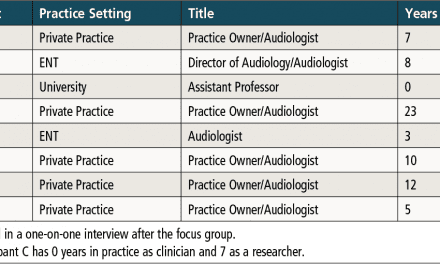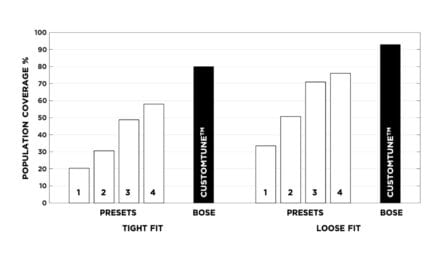Editor’s Note: Because of the short time HR provided Dr Lisa Tseng in commenting on Friday, we are re-running this news item with her comment on the bottom.
Three of the major professional organizations involved in hearing aid dispensing responded last week with letters directed to hi HealthInnovations, a subsidiary of UnitedHealth Group that announced in early October its plans to market hearing devices via UH’s provider network and directly to consumers via the Internet. Both letters raised questions about the legality of the online marketing of hearing aids by hi HealthInnovations, as well as expressed concerns about eliminating hearing care professionals from the testing, selection, fitting, and rehabilitation process. (For more information, see the HR Online news item from October 3 and the October 10 HR interview of hi HealthInnovations CEO Lisa Tseng, MD, at www.hearingreview.com.)
In a “cease and desist” letter to Dr Tseng (pictured, right) dated October 26, International Hearing Society (IHS) General Counsel John Paul Hessburg said that IHS believes hi HealthInnovations is not in compliance with FDA regulations in the company’s online marketing.jpg)
The letter goes on to outline FDA requirements for dispensing hearing aids, including the provision of a User Instructional Brochure, labeling and warranty requirements, and steps to ensure that “red flag” medical conditions are identified prior to the dispensing of a hearing aid. “Based on our review of your website as well as our own participation in your online ‘hearing test,’ it is evident that your program requires the consumer to do their own ‘red flag’ testing. This ‘self diagnostic’ approach is not only inconsistent with the FDA’s directives and State Licensing laws, it unreasonably places the consumer at great risk,” writes Hessburg.
IHS counsel also believes that hi HealthInnovations is in violation of most, if not all, state licensing laws because the hearing aids “are being sold by individuals who are not licensed by the state in which the end user resides,” writes Hessburg. He says that, in reviewing the licensing laws of all 50 states, statutes “expressly prohibit the sale of hearing aids to consumers in their State by individuals who are not, at a minimum, licensed in their State.”
In particular, California, Florida, Kansas, Missouri, Nevada, New York, Oregon, Texas, Washington, and West Virginia have laws that ban mail-order sales or only allow these sales when there has been face-to-face contact, a prior fitting, or otoscopic examination by an individual licensed by that particular state, according to Hessburg. He notes that these violations would also put hi HealthInnovations in violation of Federal Trade Commission (FTC) guidelines, and his letter concludes:
“FDA requirements, State licensing laws, and Federal and State Consumer Protection laws, are designed to protect the public from harm. Unfortunately, your actions violate Federal and State laws and we must ask that you cease and desist. If you are unwilling to do so, we will have no choice but to pursue all legal remedies including but not limited to filing a complaint with the Federal Trade Commission, as well as pursuing action(s) at the State level for violating State licensing regulations and State consumer protection laws… .”
An October 31 letter from American Academy of Audiology (AAA) President Theresa Walden, AuD, and Academy of Doctors of Audiology (ADA) President Bruce Vircks, AuD, was sent to Dr Tseng and Rhonda Medows, MD, chief medical officer/executive vice president of UnitedHealth Group. Walden and Vircks write that, when taking hi HealthInnovations’ At-home online test, the softest sound heard by a normal-hearing listener resulted in a recommendation to seek a hearing device for each ear. They also request clarification about whether the hi HealthInnovations device is a hearing aid or a personal sound amplification product (PSAP), and if it’s the latter, they ask why a consumer would need an online test for the fitting of a PSAP.
As with IHS’s letter to Dr Tseng, the joint-AAA/ADA letter notes “statutory licensing requirements for dispensing hearing aids as well as the current regulatory requirements of a physical examination of the patient prior to a hearing aid purchase,” and reminds UH that hearing aids are only one part of a comprehensive treatment and management plan in overcoming hearing loss. In particular, Walden and Vircks note the importance of: testing for hearing-in-noise and directional microphone implementation; telephone and telecoil technology; multiple listening programs for different listening environments; and audiologist-administered “customized online or at-home computerized training programs that will ensure maximum benefit from the use of the hearing aids.” They contend that a pre-programmed $700-$900 hearing aid cannot overcome the necessary “human factor” involved in dispensing. Write Walden and Vircks:
“We are glad that hi HealthInnovations recognizes the need to expand access for hearing healthcare—that is a positive approach for those who deserve and require access to their listening environments. However, what is vastly missing from this current plan is the human factor: the patient is more than an online hearing screening with beeping tones and a few situational questions. And, the audiologist is more than a hearing aid fitter—we improve the patient’s quality of life because the care we provide is centered on the person sitting in front of us – not centered on a piece of technology. By excluding the health care services provided by the audiologist and the physician, you are doing a disservice to patients and this creates the potential for many dissatisfied subscribers to your services. Audiologists and physicians must be a part of a sustainable delivery model. We offer you our expertise, including many, many years of direct patient care, research and education, to assist hi Health Innovations and UnitedHealth to create a delivery model that includes the services provided by an audiologist and provides state of the art, cost-effective care for your subscribers — our patients.”
Responding via email to HR‘s request for commentary, Dr Tseng replied, “We look forward to continuing to work with hearing health professionals to improve the lives of people with hearing loss in new and innovative ways, and continuing to comply with applicable federal and state requirements as we do so.”
Also see related articles:
AMA News Profiles UnitedHealth’s Hearing Aid Business and ENT Reactions, Oct 28 HR Online News.
BHI Issues Consumer Warning About DIY Hearing Care, Oct 14 HR Online News.




